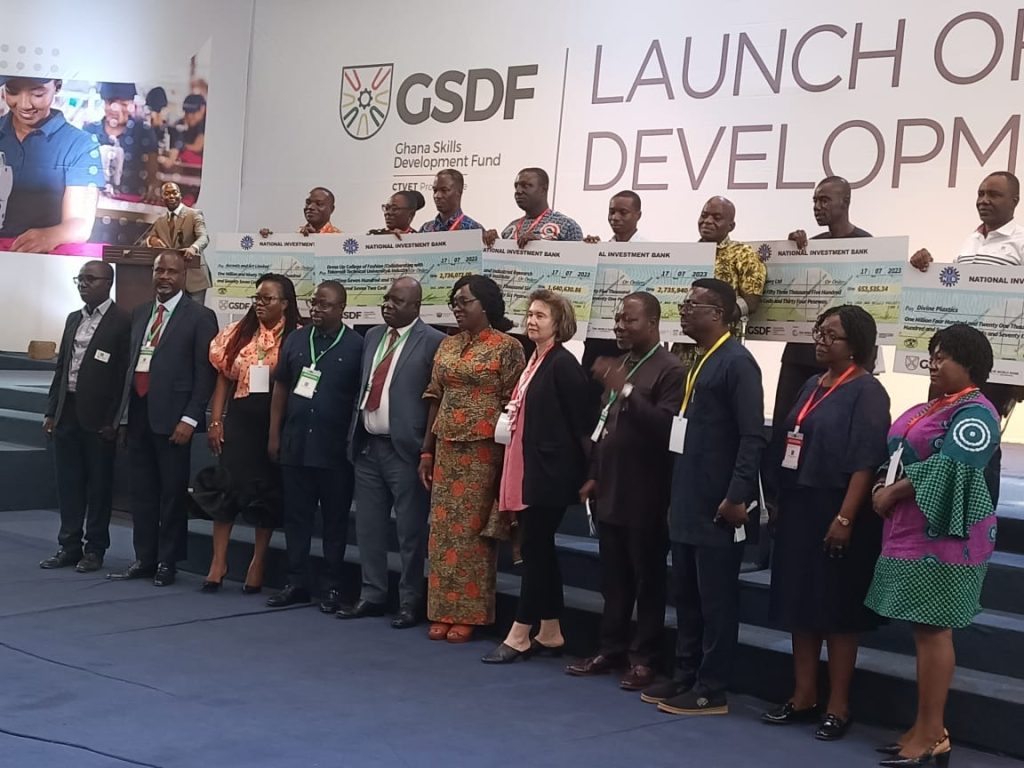By Edward Acquah
Accra, July 17, GNA – About 700 micro and small enterprises from formal and informal sectors involved in skills development and job creation are to benefit from a specialised fund establlished to boost productivity and provide decent jobs.
The $60m Ghana Skills Development Fund (GSDF), which is part of a $200m Ghana Jobs and Skills Project, and supported by the World Bank, seeks to create jobs and competitiveness of the skilled workforce and raise the income-earning capacities of people, especially women and low-income groups.
The five-year GSDF Project is also expected to provide about 42,000 direct jobs.
Ms Gifty Twum-Ampofo, a Deputy Minister of Education, in-charge of Technical, Vocational Education and Training (TVET), launched the Fund at a ceremony in Accra on Monday.
The initiative, which is part of the Government’s five-year strategic plan to revamp TVET, is being implemented by the Commission for Technical and Vocational Education and Training (CTVET) under the auspices of the Ministry of Education, and supported by the International Development Association of the World Bank.
The implementation of the Fund commenced in August 2022, when the Managers of the Fund announced the first call for applications from interested enterprises.
A total of 105 enterprises were approved by the Fund to sign their contracts and disbursements had been made to some of them.
The second call for applications is scheduled from August 1 to August 31, 2023, and that window is expected to benefit about 200 enterprises.
Mr Kwasi Asamoah-Baffour, the Chairperson of the GSDF Steering Committee, said new enterprises and/or enterprises that were less than three years in continuous operation would not be eligible for the grant.
Enterprises in sectors with high-employment-growth potential and enterprises with large share of female employees and persons living with disabilities would have an advantage, he added.
Ms Twum-Ampofo said the GSDF would not be disbursed as a loan to the beneficiaries, adding that support provided under the Fund was not required to be paid back.
“However, implementation of grantee projects will need to result in desired outcomes of the GSDF, which include increased productivity, quality, competitiveness, job creation, and increased incomes,” she said.

Ms Twum-Ampofo said it was the Government’s objective that the Fund would support the upgrading of the skills of employees within beneficiary enterprises and companies for productivity improvement and to enable employees adopt emerging new technologies.
She said the Government was also hopeful that the Fund would lead to upgrading the skills of master crafts-persons and self-employed graduate apprentices.
Ms Elena Glinskaya, Lead Economist at the World Bank, and Co-Task Leader, Ghana Jobs and Skills Project, described the GSDF as innovative and pledged the support of the World Bank to help Ghana build its human resource base for sustainable development.
Dr Fred Kyei Asamoah, the Director General of CTVET, said the selection of organisations to benefit from the Fund would be based on merit.
He said the Fund would serve as a vehicle to raise TVET financing in keeping with the Government’s commitment to use TVET as a tool to build essential skills and provide decent employment.
GNA